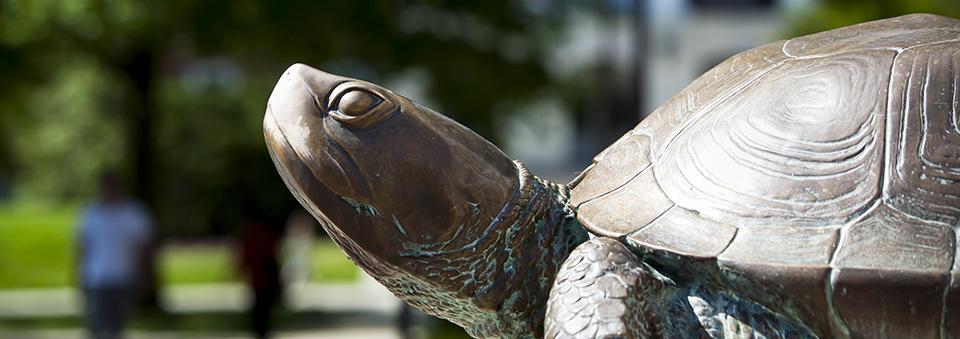Institutional Animal Care and Use Committee (IACUC)
About the IACUC
The use of animals in research, testing and teaching is primarily governed by two federal laws and their associated regulations, policies and guidelines:
- The Animal Welfare Act (AWA) and the Animal Welfare Act Regulations (AWR)
- The Health Research Extension Act (HREA) with the associated Public Health Service Policy on Humane Care and Use of Laboratory Animals (PHS Policy, 1985) and the Guide for the Care and Use of Laboratory Animals (1962, 2011, 8th ed.)
In 1985, the AWA was amended to include a requirement that all research institutions establish an institutional oversight board with specified duties for assuring compliance with the AWA. At about the same time, the HREA required research institutions that receive PHS funding to establish animal care oversight committees. Together, these led to the birth of the Institutional Animal Care and Use Committee, or IACUC. While the specific requirements of each law and their associated regulations and policies differ slightly from one another, the overall goals are the same—to ensure the proper care of animals used for teaching and research. The IACUC is instrumental in implementing federal and local policies, and ensuring excellent care for animals.
The composition of the IACUC is mandated by the PHS Policy and AWRs to include:
- Scientists (faculty researchers/educators)
- The Attending Veterinarian (AV) or a veterinarian with authority to act on behalf of the AV
- Non-scientists (e.g., ethicists, statisticians, etc.)
- Individuals (1 or 2) not associated with the Campus
- Chair (sufficient stature, e.g. seniority or tenure)
Our practice is to include faculty researchers and educators from all major units that participate in animal research or teaching at the University of Maryland (e.g., Biology, Animal Sciences, Psychology, etc.) so that protocol review is informed by expertise as much as possible.
PIs may wish to view IACUC members from their unit as resources through which the PI may obtain assistance, information and/or clarification on protocol submission and processing.
IACUC Chair
Dr. Catherine Carr, Professor, Department of Biology
Position Statement
The UMD IACUC adheres to the belief that the development of knowledge necessary to improve the health and well-being of human beings and other animals, to optimize agricultural production, and to provide high-quality education in biological and animal sciences reliant upon the use of a wide variety of animal species.
In particular, the UMD IACUC observes the principles and requirements espoused in The Animal Welfare Act and the Animal Welfare Regulations, as well as the Public Health Service Policy on Human Care and Use of Laboratory Animals and the Guide for the Care and Use of Laboratory Animals.
- Procedures should be designed and performed on the basis of relevance to human or animal health, advancement of knowledge, and/or the good of society.
- The appropriate species, quality, and number of animals should be used.
- Discomfort, distress, and pain should be avoided or minimized in concert with sound science.
- Appropriate sedation, analgesia, or anesthesia should be used.
- Humane and experimental end points should be established.
- Appropriate animal husbandry should be directed and performed by qualified persons.
- Experimentation on living animals should only be conducted by or under the close supervision of qualified and experienced persons.
Additionally, the IACUC advocates the use of animal alternatives as described by the 3 Rs in The Principles of Humane Experimental Techniques (Russell & Burch, 1959), specifically:
- REPLACEMENT of animals when possible,
- REDUCTION in the animal numbers used, and
- REFINEMENT of the animal procedures to minimize discomfort as much as possible
Currently, IACUC review applies officially only to vertebrate animals. However, it is assumed that invertebrate species (PDF) will be handled with the same degree of care and concern.
Accreditation, Assurance, and Registration
AAALAC:
Date of Initial Accreditation: October 25, 2011
Status: Full Accreditation
Most recent site visit: October 2023
PHS:
Assurance Number: A3270-01 or D16-00172 (under the new numbering system)
USDA:
Customer ID: 91
Certificate Number: 51-R-0095
Committee Statistics
| Request Type | Type of Review | Average Days to Approve |
|---|---|---|
| Amendments | Designated Member Review (DMR) & Full Committee Review (FCR) | 15 days |
| Amendments | Veterinary Verification and Consultation (VVC) | 4 days |
| New Protocols | Designated Member Review (DMR) | 20 days |
| New Protocols | Full Committee Review (FCR) | 20 days |
To request a text-only version of any PDF on this page, please contact the IACUC.

